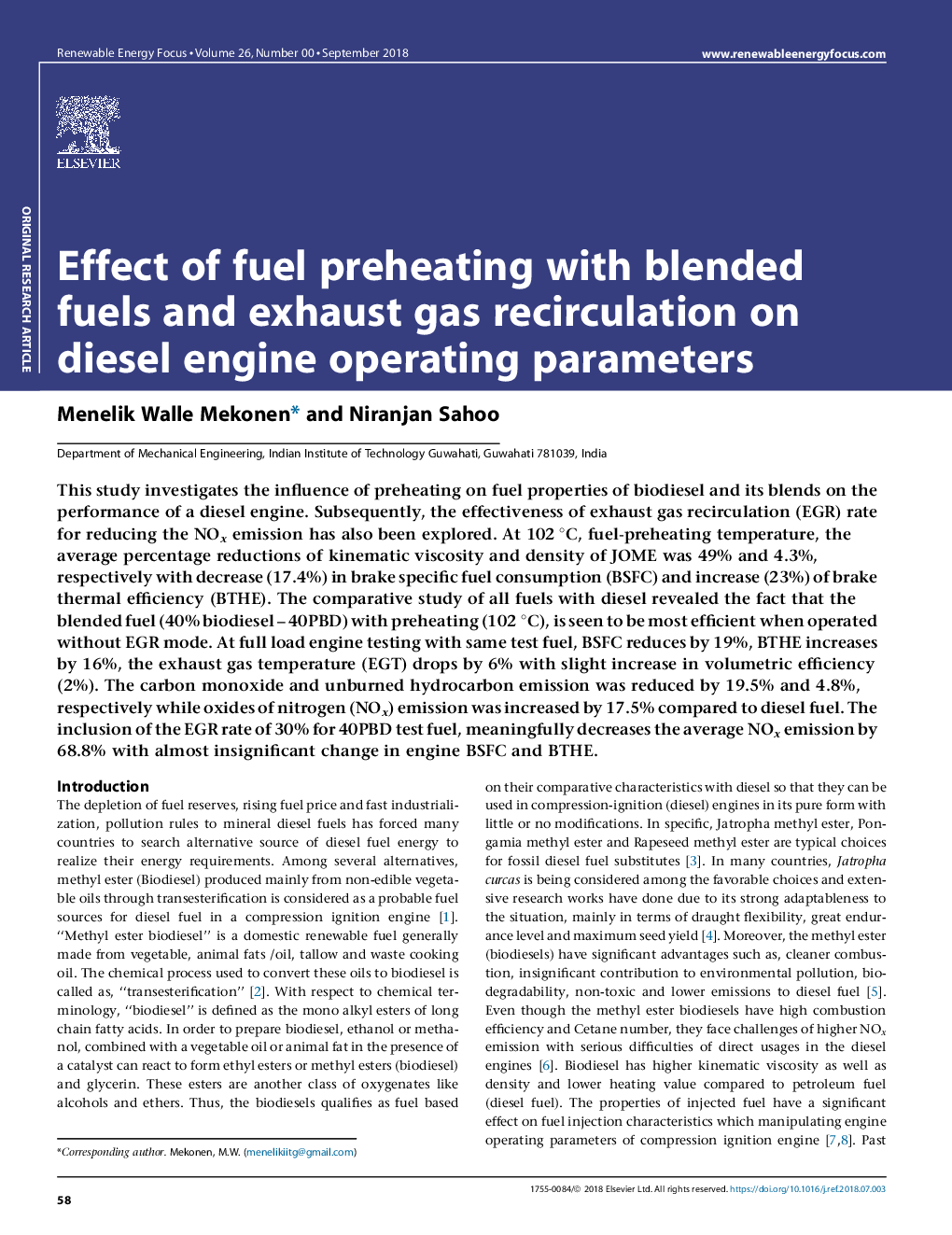| Article ID | Journal | Published Year | Pages | File Type |
|---|---|---|---|---|
| 8110131 | Renewable Energy Focus | 2018 | 13 Pages |
Abstract
This study investigates the influence of preheating on fuel properties of biodiesel and its blends on the performance of a diesel engine. Subsequently, the effectiveness of exhaust gas recirculation (EGR) rate for reducing the NOx emission has also been explored. At 102 °C, fuel-preheating temperature, the average percentage reductions of kinematic viscosity and density of JOME was 49% and 4.3%, respectively with decrease (17.4%) in brake specific fuel consumption (BSFC) and increase (23%) of brake thermal efficiency (BTHE). The comparative study of all fuels with diesel revealed the fact that the blended fuel (40% biodiesel - 40PBD) with preheating (102 °C), is seen to be most efficient when operated without EGR mode. At full load engine testing with same test fuel, BSFC reduces by 19%, BTHE increases by 16%, the exhaust gas temperature (EGT) drops by 6% with slight increase in volumetric efficiency (2%). The carbon monoxide and unburned hydrocarbon emission was reduced by 19.5% and 4.8%, respectively while oxides of nitrogen (NOx) emission was increased by 17.5% compared to diesel fuel. The inclusion of the EGR rate of 30% for 40PBD test fuel, meaningfully decreases the average NOx emission by 68.8% with almost insignificant change in engine BSFC and BTHE.
Related Topics
Physical Sciences and Engineering
Energy
Renewable Energy, Sustainability and the Environment
Authors
Menelik Walle Mekonen, Niranjan Sahoo,
